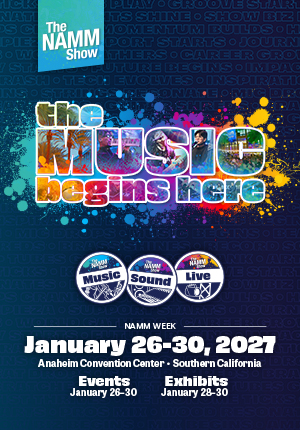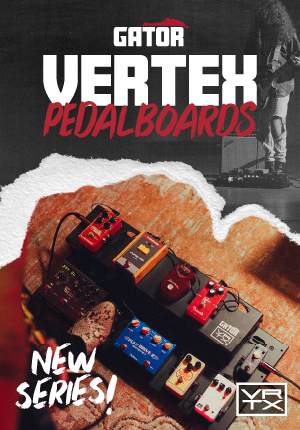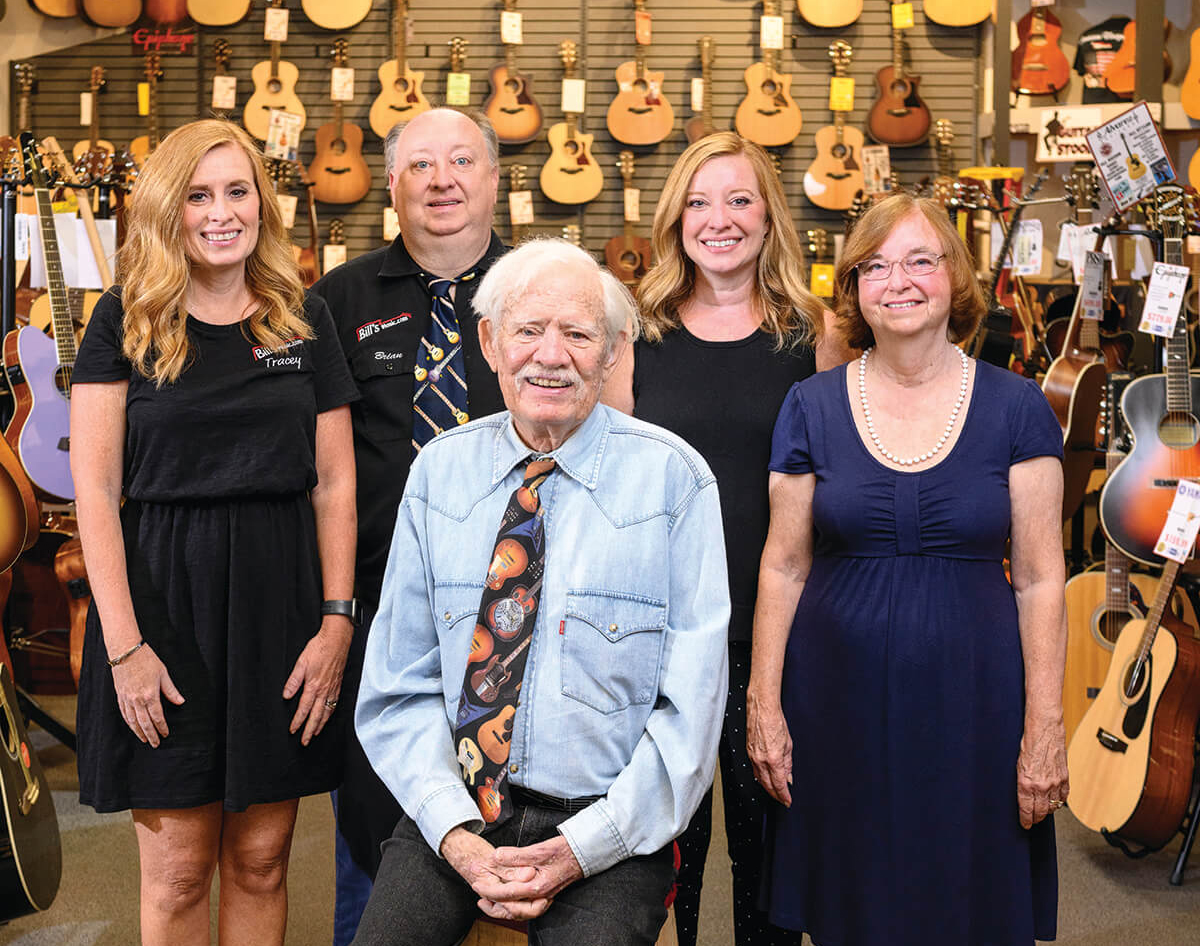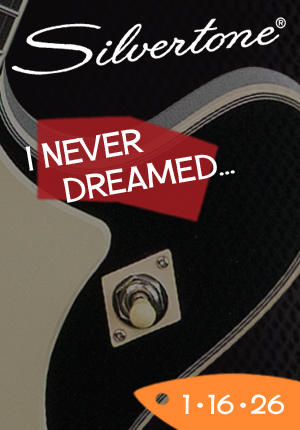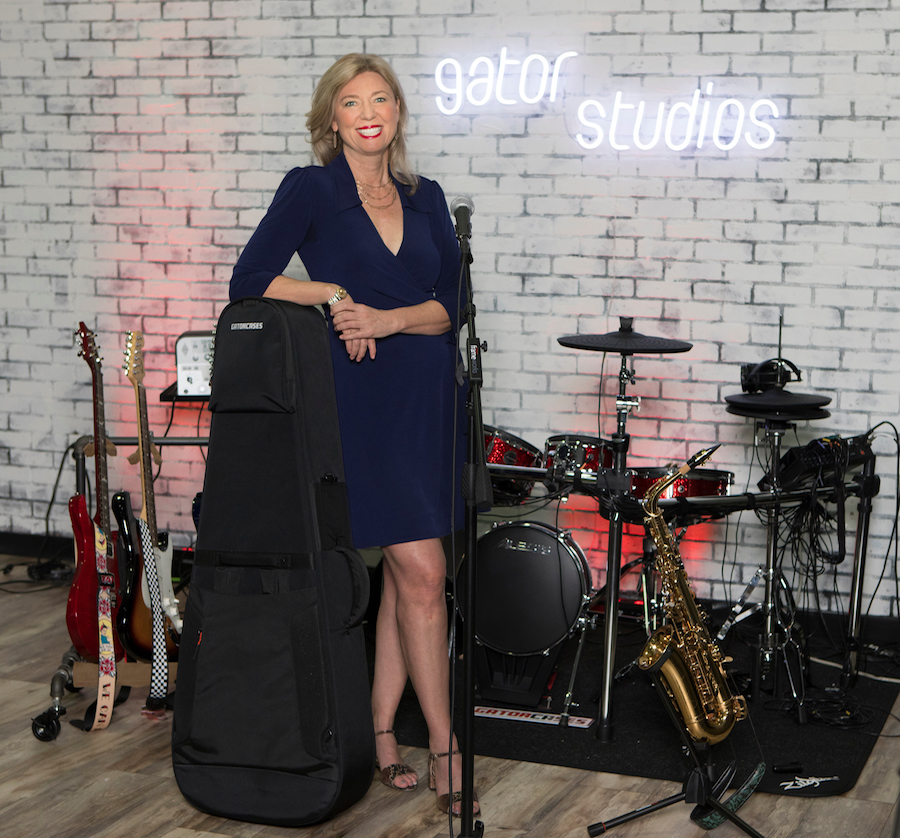
Crystal Morris
HQ: Tampa, Florida
Founded: 2000
Employees: Roughly 135
Fun Fact: In addition to co-founding Gator with her father and leading the company as CEO, Morris is an active mentor to rising women leaders. Four years ago, she co-founded Smart Women in Music, an organization that supports the growth of women in MI.
How do you start your day?
Our office mascot is a dog named Scout, and I start the day by taking him for a walk. I love doing that because it helps me get fresh air and clear my mind. I also meditate every morning to center myself, focus on what’s in front of me and prepare for the day. Then I try to exercise before kicking off my morning at work. When I get to the office, I walk around and say hello to the folks there. I want to make sure that everyone on our team feels welcome. A lot of times, Scout will come along to help me do that.
How would you describe yourself as a manager?
I’m very supportive, but also give people the freedom to make their own decisions and find their own wins. I try to create a culture where it’s OK to fail — just fail fast, learn from it and go try something else. I’m extremely transparent and believe that, by offering transparency, you can develop trust. Both personally and at work, I try to work hard, do the right thing, and make other people feel good and successful. I’m a big believer in rising tides lifting all boats.
It sounds like you’re cultivating a very positive workplace.
Ultimately, I’m extremely excited about what we do at Gator, and it’s important to me that we keep things fun, real and balanced. Work-life balance is very important, and I always promote a family-friendly culture. Beyond that, I look at Gator as a group of micro-businesses. Every part of our company — sales, marketing, even our cost centers — runs very independently, and the people who work in each division own what they do. That independence and ownership helps give everyone a feeling of satisfaction at the end of the day.
What’s newest and most exciting for you at Gator right now?
What I’ve enjoyed the most this past year is developing an entire line of musician’s furniture products. It’s everything from home studio and home podcasting furniture to furniture designed for guitar players — guitar and amp stands, for example — that are functional and will help you make music, but will also look nice in your house.
I’ve really enjoyed exploring the concept of blending MI products and home furnishings. The other area I’m very excited about has just been a roller coaster — we developed a line of air filter covers for band instruments, so people can safely play music together and not spread aerosols all over the place.
How does that work?
The products are double-layered covers with replaceable paper filters, and they go over the ends of brass and woodwind instruments. When you look at scientific studies that examine airflow and disease transmission, it’s crazy how many aerosols can be projected in the air plumes coming from band instruments. In a closed rehearsal room with a bunch of kids cycling through, it can be a big germ-spreading activity. Our filters are very affordable, and it’s been exciting to provide them to bands and schools. We’ve been getting letters from band directors saying that we helped them get their programs back off the ground, which is great to hear. Working on those products has been really rewarding.
How do you approach product development?
We are a prolific company when it comes to new product development, and we often bring over a hundred products a year to market. The number one place our ideas come from is listening to customers — if someone approaches us with an idea for a segment that’s not answered or a product that doesn’t meet expectations, that’s a great launching point. Customer feedback helps us decide what feature sets to include. And it’s great to bring something to the market, go back to those customers who helped us, and let them see their fingerprints on what we created.
I’m imagining you can have a lot of fun stress-testing Gator products to see how resilient they are.
[Laughs.] We do a ton of testing on all of our products. Much of it is based on how the cases and bags are going to be used day to day, and making sure they hold up through many cycles, but some of it can also be fun and a little extreme.
We have been known to throw products off the roof, just to make sure the latches and plastics hold up. We also have a brand new Icon Series of guitar bags that we ran over with a Jeep, just to make sure the guitars inside were fine. That kind of testing is important because extreme circumstances do happen in real life and extreme testing can give users deep confidence in our products. Over the years, we’ve gotten many letters from customers who have had guitars or keyboards survive extreme experiences like falling off the back of trucks, getting run over and still being OK because of our cases.
How did you and your father end up founding Gator together?
My father had a very long history in the MI business. I had the privilege of going to NAMM shows with him starting in middle school. But even though I was always around the music industry, I never really planned to enter it. I thought I was going to go to law school, but finished college with a business degree and ended up working for my dad, who was repping brands internationally at the time. Around our kitchen table, we came up with the idea of starting a case and bag company together.
How did the collaboration look at first?
He handled sales and product development, and I was in charge of back-office work and marketing. We started running Gator out of my guest bedroom and it grew from there. Unfortunately, my dad got sick and passed away about seven years ago, so, at this point, working with Gator is very much about growing the company and honoring his legacy.
Do you want or expect the company to stay in family hands for generations beyond you?
I don’t have that plan. It feels better to send my kids on their own missions. There’s a lot of risk in bringing in another generation, both in terms of success and internal family relationships, and the failure rate for that kind of succession can be high. Plus, my kids haven’t shown a particular interest in Gator, and I’d rather they find their own paths. That said, I would love to start new ventures together with my boys, just like how my dad started a new business with me — as long as it’s their thing, and not my thing. That would be a great tradition to continue.
What might Music Inc. readers not know about Gator that you’d like them to be aware of?
Many dealers don’t realize how many products we make. It’s easy to think of Gator as just a guitar, rack or keyboard case company, but we also offer all sorts of solutions from metal rack enclosures to pro-audio solutions, stands, straps and more. We really are a one-stop shop for accessories. We are also extremely committed to the customer experience. Our internal mantra is “Let’s come out shining” — in other words, let’s give the customer the outstanding experience they’re looking for. We put ourselves in our customers’ shoes, try to understand their challenges, and make sure we are making their lives easier and helping them succeed at running all great music retail stores across the country.
Can you talk about your work as a mentor for women leaders in the music industry?
I’m working with a couple other wonderful women on a project called SWIM, which stands for Smart Women in Music. We have summits every year, where we bring about 20 women to the NAMM headquarters and offer education and networking opportunities. In addition, we offer scholarship programs to NAMM, networking events and mentorship opportunities. We want to help other women build networks, gain confidence and grow into leadership roles. I hope some women reading this will apply to be part of our next summit.
Do you see a trend of more women assuming leadership roles in the MI world?
When you look at the number of men versus women in C-level roles, it’s nowhere near parity, but it’s edging closer. And I think about the industry not just in terms of supporting women’s participation, but increasing diversity in general. Working with SWIM has helped make a number of my colleagues look at their own companies and realize that there’s a lot of progress that can be made. I’ve had a number of male CEOs call me and say, “I just hadn’t looked at this before, but now I’m changing my hiring practices and trying to take diversity more seriously.” A big part of helping those efforts is utilizing SWIM education to build the pool of women leaders who can come up through the ranks and end up in C-suite roles.
If not music, what would you be doing?
I love passion businesses and dreaming up new products — and I also love skiing, tennis and water sports — so I’d probably be figuring out new products to take to market in the sports arena.

